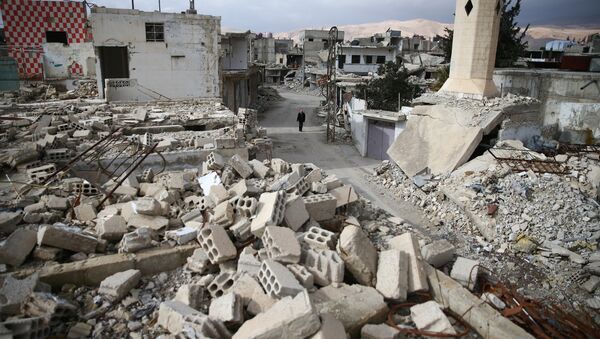On December 17, 2016, Russian President Vladimir Putin and Turkish President Recep Tayyip Erdogan discussed the possibility of a meeting between the Syrian conflicting parties in Astana. Kazakh President Nursultan Nazarbayev supported the initiative and expressed readiness to provide a platform for such talks in the Kazakh capital. On January 17, Russian Foreign Minister Sergey Lavrov said Moscow considered it appropriate to invite representatives of the new US administration to the talks.
"Iran is strenuously opposed to the presence of Americans in the upcoming Astana talks on the situation in Syria," Velayati said during his meeting with Syrian Prime Minister Imad Khamis in Tehran, as cited by the Fars news agency on Wednesday.
Velayati expressed hope that the talks in Astana could become a big step toward restoring peace in Syria, the media explained.
"There were precedents when the United States did not fulfill its promises regarding the Syrian ceasefire. There are no reasons for US presence because it is not ready for the political settlement of the Syrian crisis. Its presence will have a negative effect on the talks," Shahmani said.
The Syrian Prime Minister underlined the importance of the deep historical roots of relations between Syria and Iran.
Syrian government and opposition factions are set to meet in Astana on January 23. The talks, brokered by Russia, Turkey, and Iran, will be followed by a UN-mediated meeting in Geneva on February 8.
Never miss a story again — sign up to our Telegram channel and we'll keep you up to speed!



